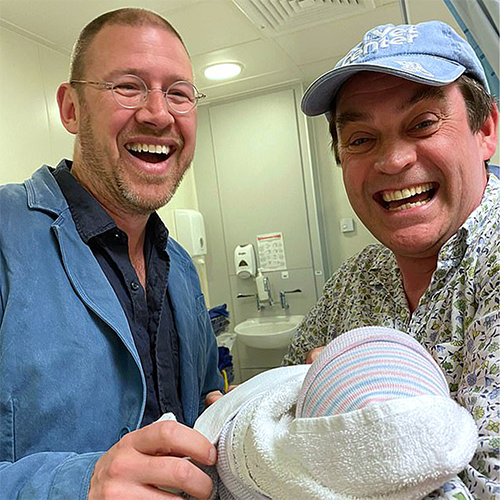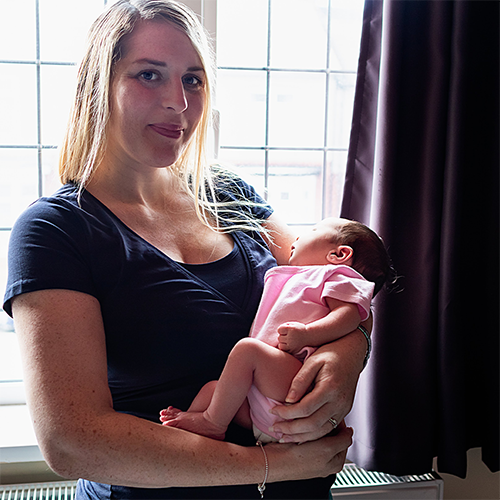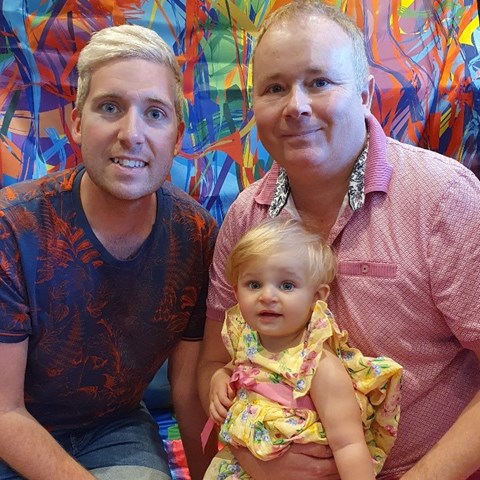Surrogacy UK: the legal and personal relationship
One of the best ways to discover how surrogacy in the UK really works on a personal level is to ask people who have been there and have direct experience. We brought some of those people together to answer your questions.
Do surrogates stay in touch with the families they help to create?
Establishing and maintaining a relationship between parents and surrogates is one of the biggest challenges, and the greatest joys, of bringing a child into the world together.
Friendship is at the heart of arrangements and the surrogacy process, and this is very much in line with SurrogacyUK’s ethos of surrogacy through friendship.
Sarah Jones, Head of Surrogacy at SurrogacyUK, one of the UK’s four government-recognised non-profit surrogacy organisations, has acted as a surrogate on five separate occasions:
"The level of friendship I maintained with the families resulted in there never being a ‘grand reveal’ regarding my part in the children’s creation: it was part and parcel of their birth story. “
Linder Pott, a member of the Board of Trustees at SurrogacyUK, has acted as both a host surrogate with a donor egg and as a straight surrogate:
"My close bond with intended parents was at the heart of my experiences, so I can see the children as often as I would with any other friend.
Each relationship between a surrogate and an intended parent will be different, and both parties should have a mutual understanding of each other’s boundaries and comfortabilities, and openly discuss this at the outset of the planned surrogacy.”
And Alan Coates, a father of two children through surrogacy using donor eggs, and a member of SurrogacyUK:
“I personally feel that it would be unnatural to refer to our surrogate as something other than a ‘friend’, as the nature of surrogacy brings surrogate and parents together in what can be a very close tie."
What is most important to people in a surrogacy arrangement is to establish a natural relationship between surrogates and intended parents.

Alan Coates, his partner, and their baby
"Sarah noted the level of friendship she maintained with the families resulted in there never being a ‘grand reveal’ regarding her part in the children’s creation: it was part and parcel of their birth story."
What happens if there’s disagreement during the process?
At the start of a surrogacy arrangement in the UK, the agreement drafted by intended parents and surrogates sets the foundation for the surrogacy process, anticipating potential issues later in the journey.
Setting clear boundaries and expectations from the beginning means that in the spirit of friendship, any later disputes become easier to handle.
Linder has had good experiences of early discussions with her intended parents, and she emphasises:
“It’s important to maintain good communication and compromise throughout the process.
Despite the agreement’s lack of legal enforceability, its weightiness, as the culmination of 10 years of decision-making in my case, keeps arrangements on track and working well.”
Alan highlights how the agreement “provokes important discussions between surrogates and intended parents, while also providing emotional tools to help with resolving any arising tensions.”

Linder Potts, Surrogate
Is surrogacy legal in the UK?
Surrogacy UK law states that the surrogate is the legal mother at birth, despite the fact that the baby is literally handed over to the intended parents as soon as possible.
Due to the current law, the surrogate must go on the original birth certificate as the mother, and if she is married or civilly partnered, her spouse/partner is recognised as the second legal parent. However, the baby can still carry the intended parents’ last name.
If the surrogate is legally single, however, one of the intended parents can be named the second legal parent on the birth certificate, if the surrogate agrees. Of course, once a parental order is granted, both intended parents (if there are two) appear on a re-issued birth certificate, and the surrogate does not.
This disconnect between legal recognition and lived reality highlights the importance of the parental order, which must be applied for within six months of the birth.
The parental order allows for a transfer of legal parenthood to the intended parents. As a result of recent legal changes, single intended parents may also apply for parental orders—meaning no legal obstacles exist for single men or women wanting to pursue surrogacy, as long as they have a genetic relationship to the child.
Andrew Spearman, Partner and Head of Family Law at Laytons ETL, told us:
“The process is relatively straightforward, provided you meet all the criteria listed. It’s infinitely preferable to follow the parental order route rather than adoption – parental orders were created specifically for surrogacy, to avoid intended parents having to adopt the children they created.”
Do you want to know more about surrogacy?
Surrogacy was a fulfilling experience for Sarah, Linder and Alan. If you have any further questions about surrogacy or egg donation, please do reach out to us at London Egg Bank. We can help you prepare for your future treatment, and, if needed, can help you find the best donor.
Contact us at matching@londoneggbank.com for more information.
Read More about Surrogacy in the UK

Mark & Nick's story: The path to fatherhood
"We found London Egg Bank online during our research and were instantly impressed by their online donor catalogue."
Surrogacy with London Egg Bank
Treatments for same-sex parenthood might seem a little different, but we've helped many men with their choices to build a family of their own.
The Law Commissions propose modernizing surrogacy laws
London Egg Bank warmly welcomes the new surrogacy proposals which have the potential to revolutionize the landscape of domestic surrogacy, making the process clearer, easier to understand, and smoother for all parties involved
Senior Research Associate, London Women's Clinic. Research interests in surrogacy and other forms of assisted reproduction and genetic technologies
